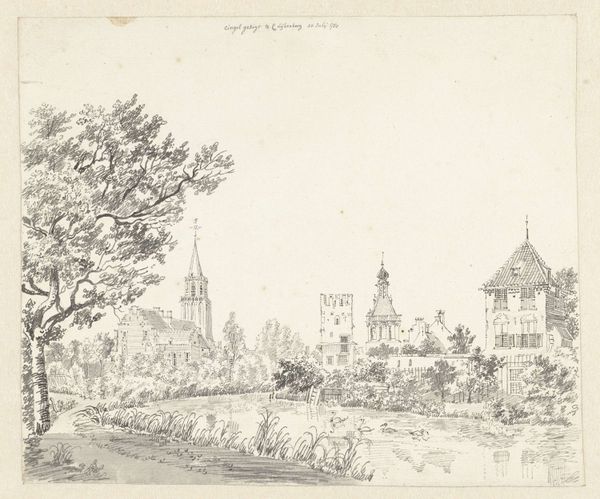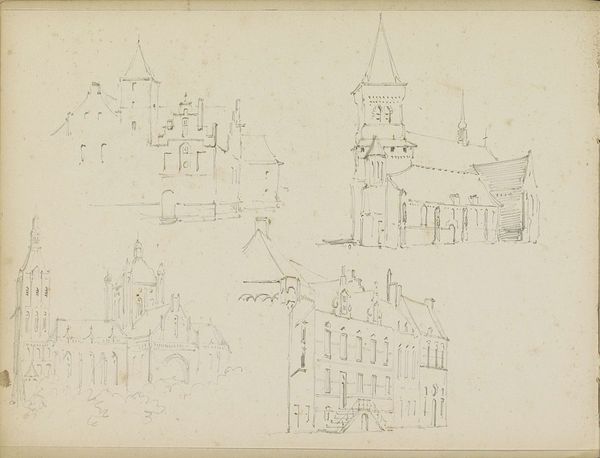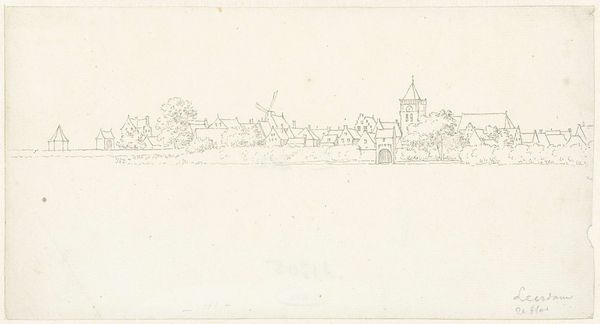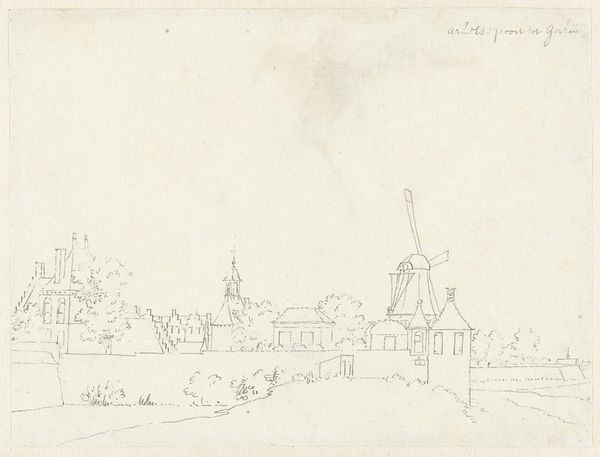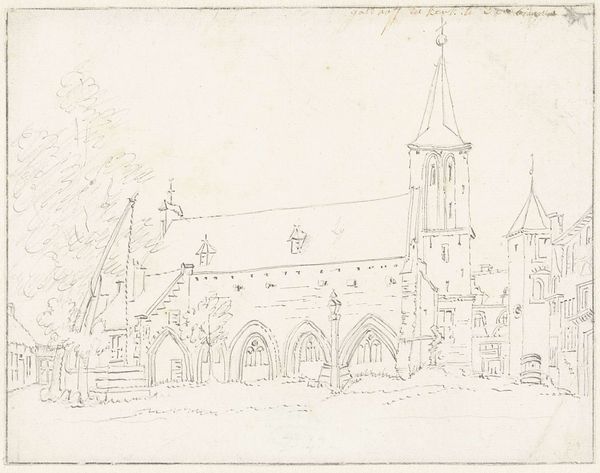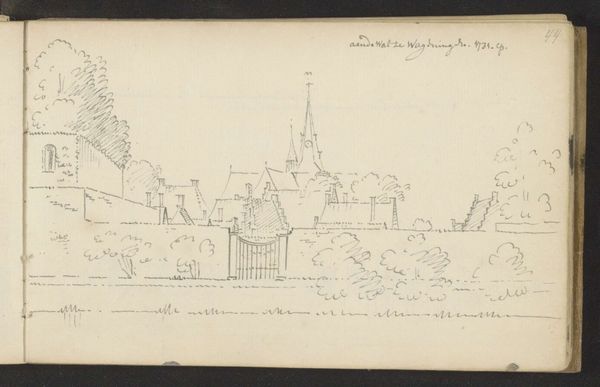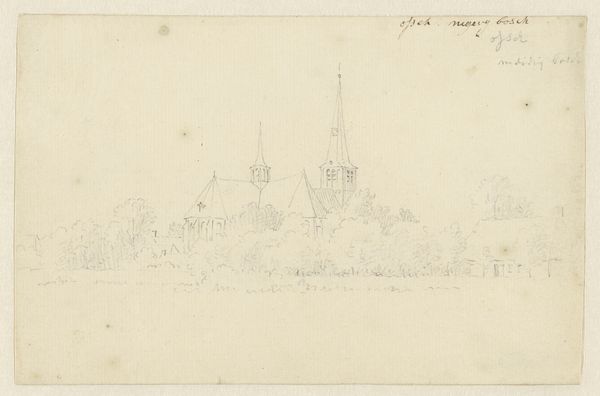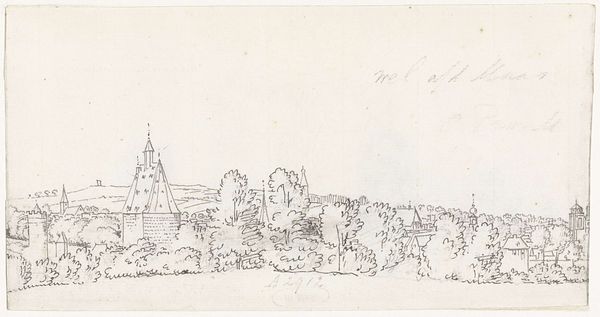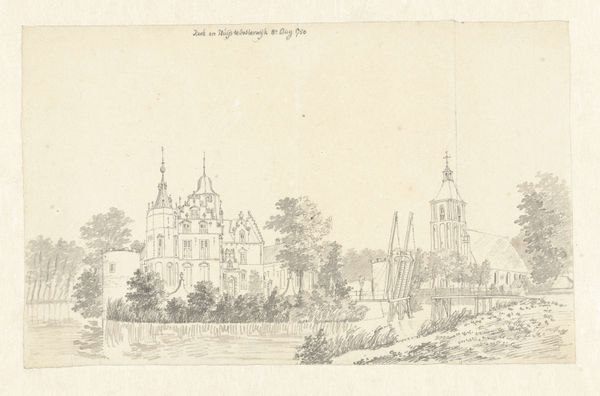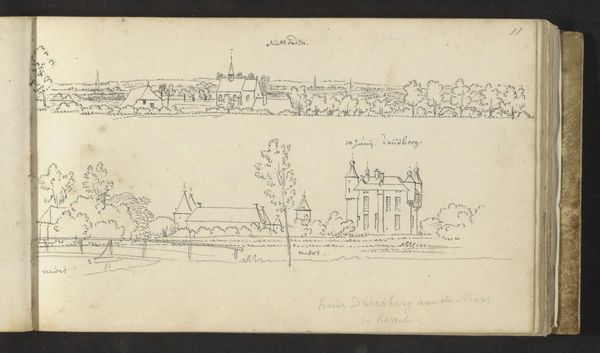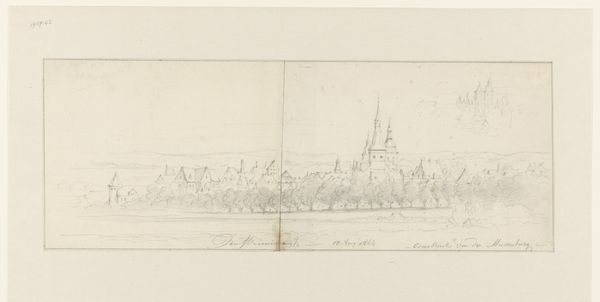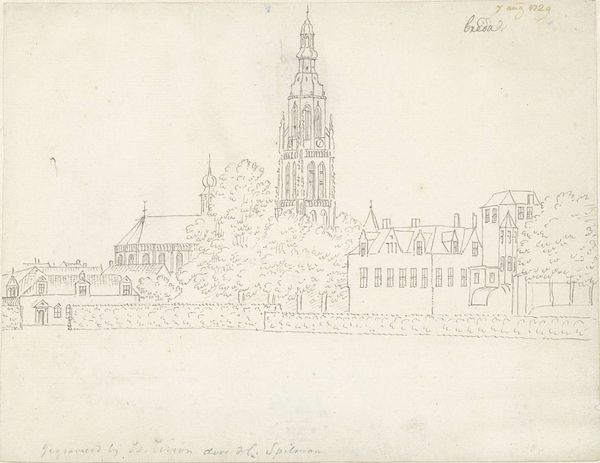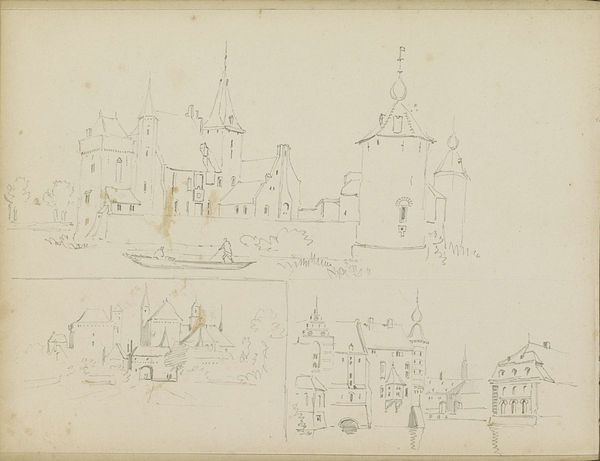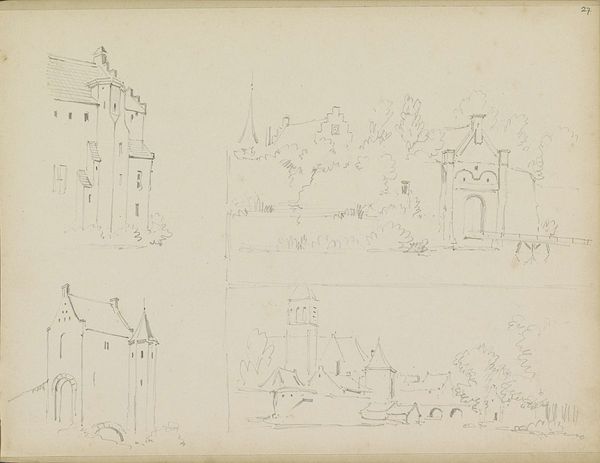
drawing, ink, pen
#
drawing
#
baroque
#
landscape
#
ink
#
geometric
#
line
#
pen
#
cityscape
Dimensions: height 155 mm, width 203 mm
Copyright: Rijks Museum: Open Domain
Curator: Cornelis Pronk’s "Poort en stadswallen van Gorinchem," created in 1728, presents a compelling study in linear perspective, capturing the architectural and spatial dynamics of the Dutch cityscape with precise detail. Editor: It’s almost ghostly, isn't it? Like a memory sketched in whispers. I find myself drawn to the subtlety—the stark simplicity. It has this serene, almost melancholic aura that makes me wonder about the artist's state of mind. Curator: Well, Pronk, primarily working with pen and ink, shows a meticulous use of line to delineate the ramparts, gate, and surrounding buildings. Note the geometric clarity – he uses it to structure the composition, adhering to Baroque conventions yet foreshadowing aspects of topographical drawing that would become increasingly prevalent. Editor: The towers look incredibly majestic, yet rendered with such delicate lines, almost like he's capturing their essence rather than just their appearance. There’s a quiet grandeur about them that’s surprisingly moving, knowing they’re captured centuries ago. It's a little poignant how time seems to dissolve in those lines. Curator: Pronk's strategic arrangement, placing architectural features along a horizontal axis, highlights the civic importance of Gorinchem’s defenses. His skillful hatching creates areas of tone suggesting three-dimensionality despite the medium's limitations. Editor: Absolutely. It almost feels incomplete in the best way – inviting us to fill in the details, the sounds, the stories of the people who walked those ramparts. There's so much potential energy simmering beneath that seemingly simple surface, I think. Curator: Indeed. Through rigorous technique and strategic deployment of artistic resources, he provides a valuable visual record while implicitly inviting deeper reflections on urban life in the 18th century. Editor: Which brings it back to feeling more timeless than something pinned down to 1728. You can almost smell the water and hear the bustle even now.
Comments
No comments
Be the first to comment and join the conversation on the ultimate creative platform.
